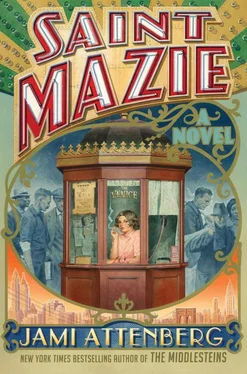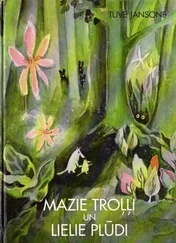Elio Ferrante
It’s pretty unlikely that he was solely a gambler based on what you’ve told me. Money laundering, sure, that was a possibility. Could have been a loan shark. Could have run booze, could have run drugs. There are myriad possibilities.
Mazie’s Diary, September 22, 1922
After breakfast this morning Louis asked us if we wanted to take a walk down to the ocean.
He said: Come on, nobody’s out there. The street is all ours.
Louis opened the front door and the most delicious ocean air came in, cool and moist. A gentle slap in the face. Rosie stopped scrubbing. She rubbed the back of her neck with her hands.
Louis said: Let’s pretend like we own it all. Like we’re the king and queen of Coney Island.
I said: I’ll play princess, Rosie. You’re the queen.
Rosie said no, and there’s no arguing with her after breakfast. All those dishes in the sink and everything. But I said yes.
I took his elbow, and we walked all the way to the end of the road. The seagulls in their loop de loops. When we got to the sand we stood quietly and I leaned against him. He took my hand and kissed it.
He said: What if we had a conversation about your sister? About her mental state.
I nearly keeled over. For years I’ve been waiting for him to want to talk about it. Rosie’s madness.
I said: I worry sick about her sometimes.
He said: She worries about you, too.
I said: But we’re not talking about me.
He said: No, we’re not.
I said: Do you think she’s crazy?
He said: You live with her, you know what I know. For weeks she’ll be fine. Months and months even.
I nodded, this was true. All had been quiet until I went off with the Captain.
I said: What about behind closed doors? That I don’t know.
He said: Behind closed doors, she sleeps like an angel.
He grimaced for a moment.
He said: Except when she doesn’t sleep at all.
I said: What can we do?
He said: Be there for her when she needs us. Show up when we’re supposed to. Schedules are important to her.
I said: But what about my life?
He didn’t answer me, he just shrugged. A tiny airplane dragged over the ocean, and he pointed at it, but didn’t say a damn thing. The wind that had felt so lovely before now stung my eyes.
I said: Haven’t I done enough? Don’t I do enough?
He walked off.
I said: But what about me?
George Flicker
Look, he was never arrested for anything, not that any of us knew of. In my book he was no worse than anyone else of his ilk. Likely he was much better.
I’ll tell you this story though. I remember I saw him one last time, right when I got back in town from France. It must have been two in the morning. I’d have done anything not to be in that apartment. The streets were empty, and I was marveling at how much cleaner they were than when I had left. Less riffraff, for starters. But there was no garbage either. I remember just the fall leaves beneath my feet.
And then he sort of startled me, and I don’t really startle easily. I’m small now, I’ve shrunk, my bones are tiny, but I was at my peak then. You know, I was this young, healthy, fit guy who’d served his country. I wasn’t so far away from battle that I wasn’t on my toes.
But Louis was an enormous man, and he tapped me on the shoulder and all I could see was this big figure behind me and I jumped. Well, he started laughing. He said, “It’s me, Georgie, your old neighbor Louis.” I said, “Louis! Of course!” My heart was racing, I had to bend over for a second. I was kind of half laughing, half breathing hard.
So he patted my back until I calmed down. He said, “Aw, I didn’t mean to scare you.” Then we just shot the breeze for a while, it was no big deal. He thanked me for my service. He’d heard about the medal from my mother, I guess. Then he offered me his card and said if I ever needed anything, some work, money, anything at all, he’d be happy to help me out. “Two pals from the neighborhood,” is what he said.
And I remember thinking exactly this to myself at the time: George Flicker, no matter how bad it gets, you never call this man for a job. Because you are no criminal.
Elio Ferrante
I know it’s killing you that you’ll never know the real truth because it seems like he might be a criminal. You’ll just have to accept the fact that you’ll never really know. I mean there’s just so many goddamn things we never get to know. We’re not entitled to all the truth.
Mazie’s Diary, November 11, 1922
Louis’s in the hospital. He was at the track and he fell forward, his heart seized on him. He was talking to a trainer, one hand on the horse, and then down he slid. It scared the horse, who ran off to her stable, where she hid for the rest of the day. No one can get her out. This is what the trainer said to me in the hospital when he came to pay his respects. I made him tell me everything. Every last detail.
I said: What track was he at?
He said: The Empire City, miss.
I said: What color’s the horse?
He said: Chocolate brown.
I said: What’s her name?
He said: Santa Maria.
I said: Is she favored to win?
He said: Not anymore.
I’m only home to bathe because one of us should bathe, between me and Rosie. One of us should be presentable to talk to whoever needs talking to. Because it doesn’t look good for Louis.
Mazie’s Diary, November 13, 1922
Louis left us yesterday. We held hands with him, me and Rosie, one hand in each of ours. Ring Around the Rosie went through my head. Ashes, ashes, we all fall down. We didn’t know what else to do but touch him for as long as we could before we couldn’t touch him anymore. Rosie sang to him in Hebrew, a song I never heard before. She said it was about being between two worlds, ending a life here, beginning a life somewhere else. I didn’t want him to go anywhere else. I held his hand against my cheek, felt his skin go from warm to cool to cold. All the wailing. A doctor, a nurse, another nurse, stuck their heads in the room, until finally they stopped looking and left us alone.
Mazie’s Diary, November 14, 1922
There were four of us, and then there were three, and now it is just two.
Mazie’s Diary, November 15, 1922
Rosie sits like a stone in the kitchen. Barely made of flesh. I nearly didn’t get her to the funeral. I couldn’t find Jeanie to tell her he was sick, let alone dying, now dead. She’s just…somewhere in California. She will always be somewhere in California. Louis will always be dead now.
So it was just the two of us, and Louis’s aunts and their husbands, wading through the fall leaves toward the grave site. All the Gordons weeping, and Rosie just stock-still, until she fell to her knees, the lower half of her collapsing where the top half of her could not. Her dress was covered with dirt and when she stood I dusted her off.
I said: You’ll be all right.
I must have said that a dozen times until I realized I was still saying it out loud and not just in my head. Everyone looked at me as I chattered. I put my arm around Rosie and said it one more time.
Mazie’s Diary, November 17, 1922
We sat shiva today. Neither of us wanted to, as we practice no faith, but Louis was a Jew, in his way. And so for Louis, we opened our doors to his aunts. They arrived like a squadron, a squat army of mourners. I was glad they were there for the help. One of his aunts had brought what looked like a wall of smoked fish. They were noisy and busy in their preparations. It was good to listen to their chatter, their huffing, the opening and slamming of cabinet doors as they found their way through an unfamiliar kitchen.
Читать дальше












